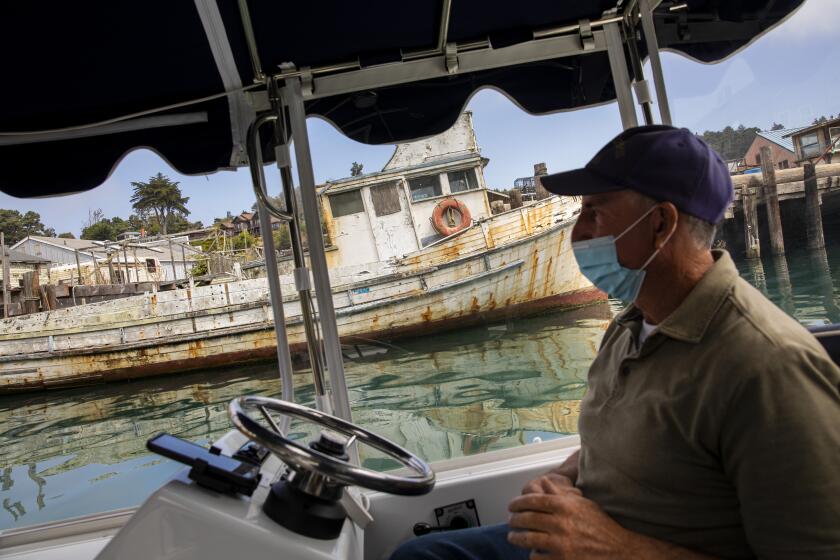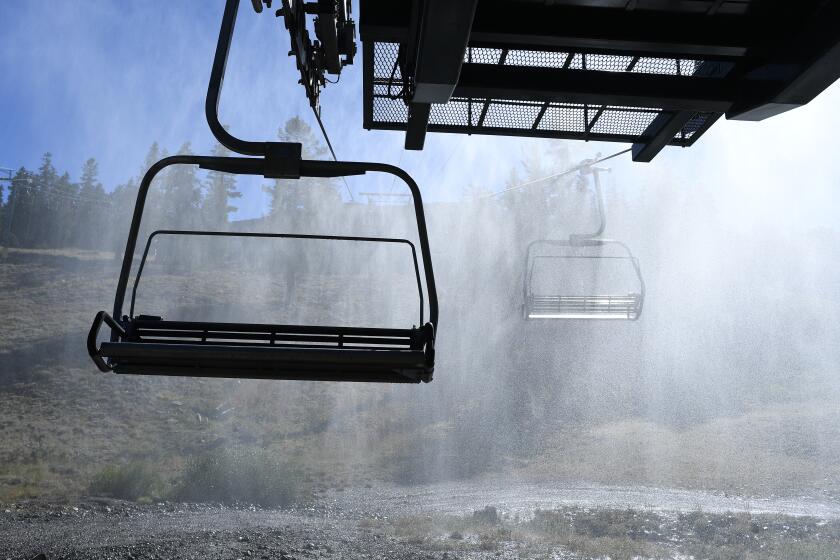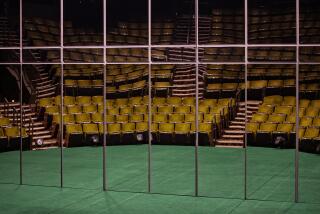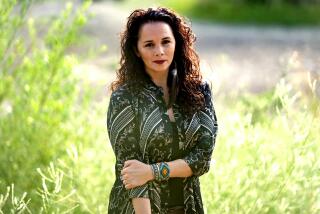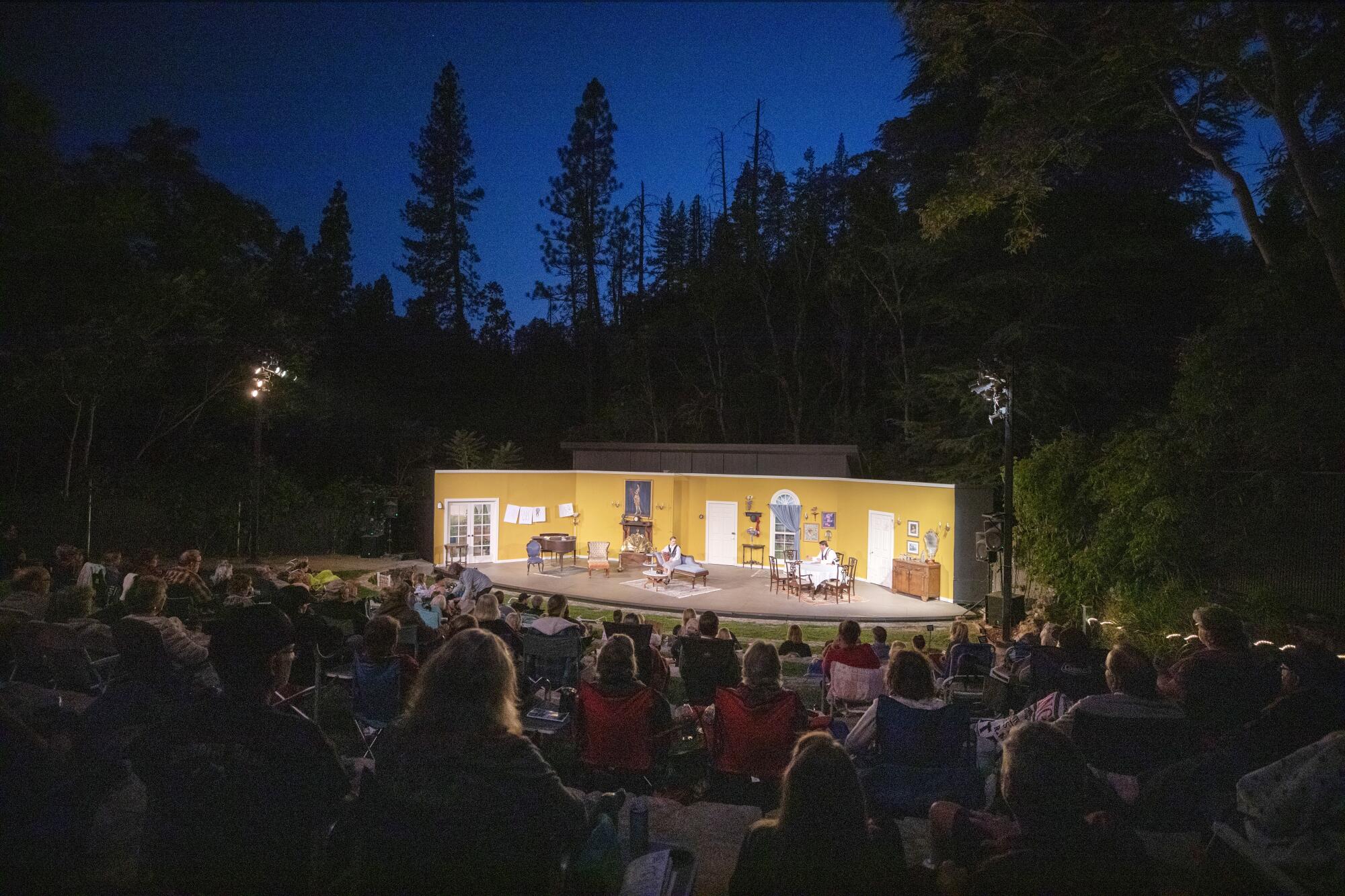
VOLCANO, Calif. — The aging actress had made up her mind.
After a brief and boring retirement in the countryside, she planned to make her triumphant return to — drumroll, please — the stage!
“I long for excitement! And glamour!” the vainglorious Judith Bliss proclaimed to her eye-rolling children. “Think of the thrill of a first night, all those ardent playgoers willing one to succeed.”
Such excitement had gone missing at the Volcano Amphitheatre, where real-life actress Paula Bibby was playing Judith in the 1924 play “Hay Fever.”
For as it turns out, life itself provided its own dramatic script that darkened the stages in this speck of a Sierra foothills town for the better part of 20 months.
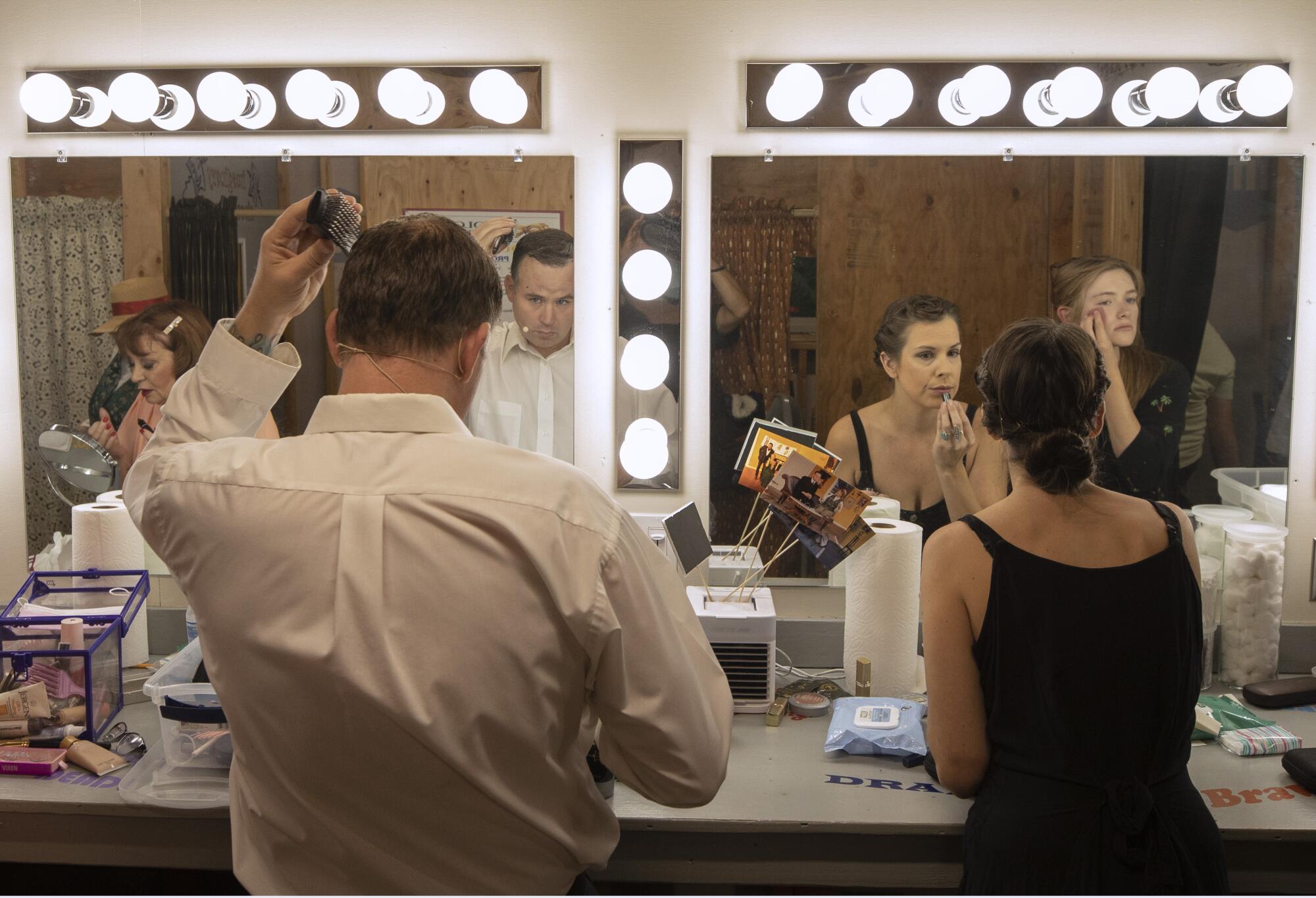
First there was the COVID-19 pandemic that canceled the 2020 season for the Volcano Theatre Company. Then the vaccines came along and, with them, hope for a carefree “hot vax summer” and a victorious return to the stage here in California’s Mother Lode region.
Enter stage left, with a villain’s creep: the virus’ Delta variant. It tried to steal the show, infecting actors and locals alike. But the season opened July 30 with a performance of “Hay Fever.”
A triumph, they called it.
Alas, smoke filled the air the very next week as the Dixie fire burned up north, blotting out the sun and the stars and yet another show in the outdoor amphitheater. The Caldor fire came next, with its evacuation warnings stretching into Volcano. Two more shows, kaput.
“It’s been incredibly depressing,” said Colleen Hagyard, treasurer for the nonprofit Volcano Theatre Company’s board of directors.
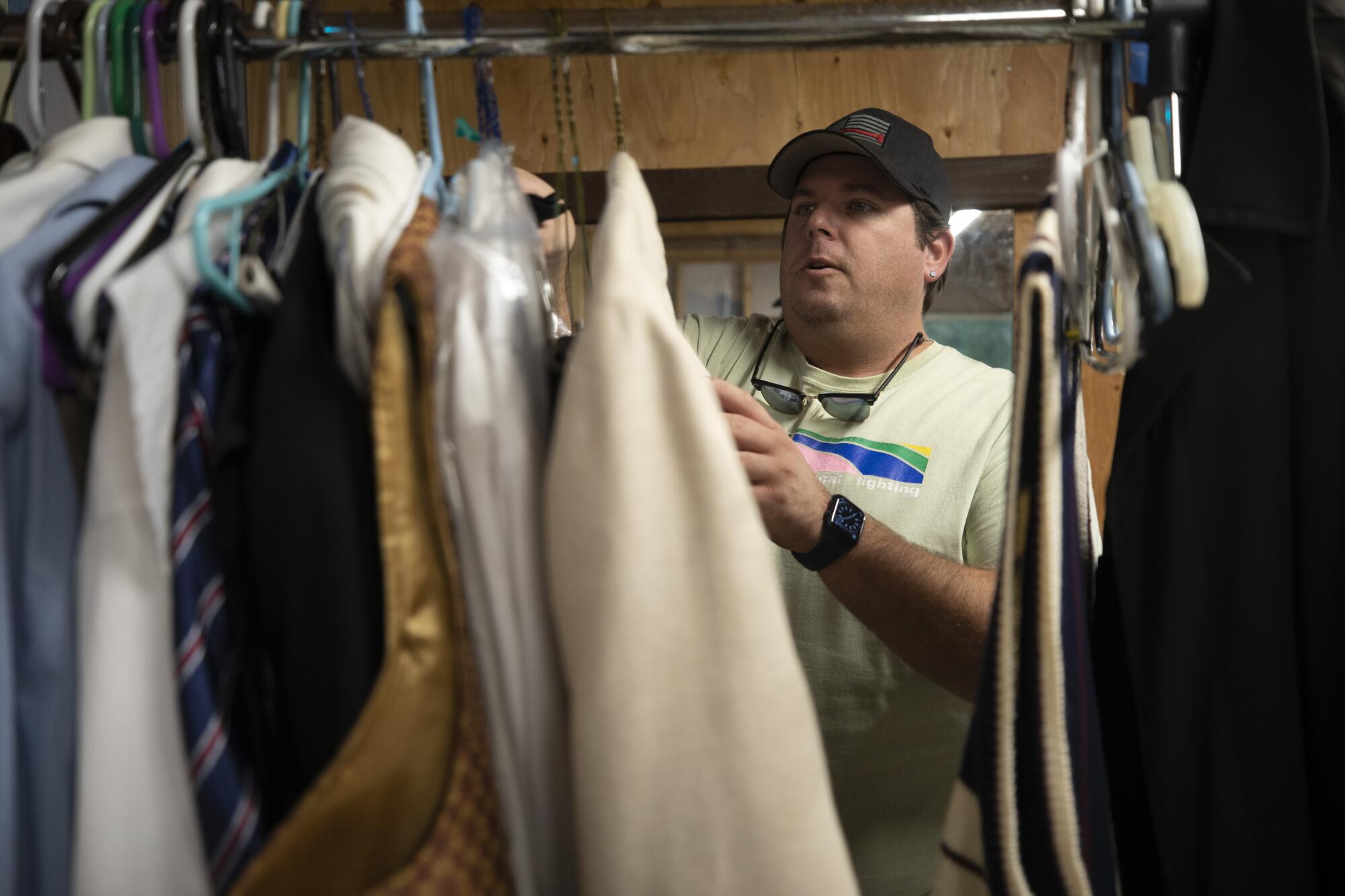
“This year, everybody gets vaccinated, the state opens up, and we’re still dealing with COVID. Actors get it. It’s just a problem. And now the fires on top of it? It feels like we can’t catch a break.”
The Volcano Theatre Company has long been the cultural heart of this Amador County hamlet, drawing thousands of people each year to its few restaurants, hotels and businesses.
The town, population about 100, sits in a bowl-shaped valley, which Gold Rush miners thought might be the crater of a dormant volcano. It once was a boomtown, with thousands of residents, a private law school, an astronomical observatory, and — in deference to the sacred and the profane — lots of churches and saloons.
Now, it’s one of those tiny places peppering California that seem primed to be blotted out by some calamity, human- or nature-made.
When the Caldor fire started, Hagyard, 60, could see it from her Volcano house. She and her husband stuffed three days’ worth of clothes and some valuables into the trunk of their vehicle, ready to flee.
The fire burned away from them, to the north and east. They felt both lucky and guilty. Two friends in Grizzly Flats had just lost their homes to the flames.
For longtime fisherman Dan Platt, life on the water has required adaptation amid a warming climate.
But, all things considered, it was a time to be joyful, Hagyard said. She was standing outside the amphitheater on the last Saturday of August. The air was blessedly clear in Volcano, somehow. The show would go on.
As playgoers filtered into the amphitheater, the cast and crew — with a flair for the dramatic — could hardly contain their excitement.
“It’s been … frustrating? That’s a good word, right?” director Jim Estes said of the last year. “As actors, being involved in the theater, this is what we dooo.”
“It’s a very good — what’s the word I want to use? — a diversion away from everything,” Bibby added.
“Our life away from life,” Estes cut in, satisfied as he found the perfect line.
The all-volunteer theater began in 1974. Shows take place in the outdoor amphitheater and, across the street, the Cobblestone Theatre built in 1856. With just 35 chairs, it is reputedly the smallest fixed-seat theater in California.
“We’re such a small county, and we don’t have a massive amount of art,” said Savannah Mulderrig, a 32-year-old actress. “It’s just important for people to experience live theater. If you don’t go here, you’re going to Sacramento.”
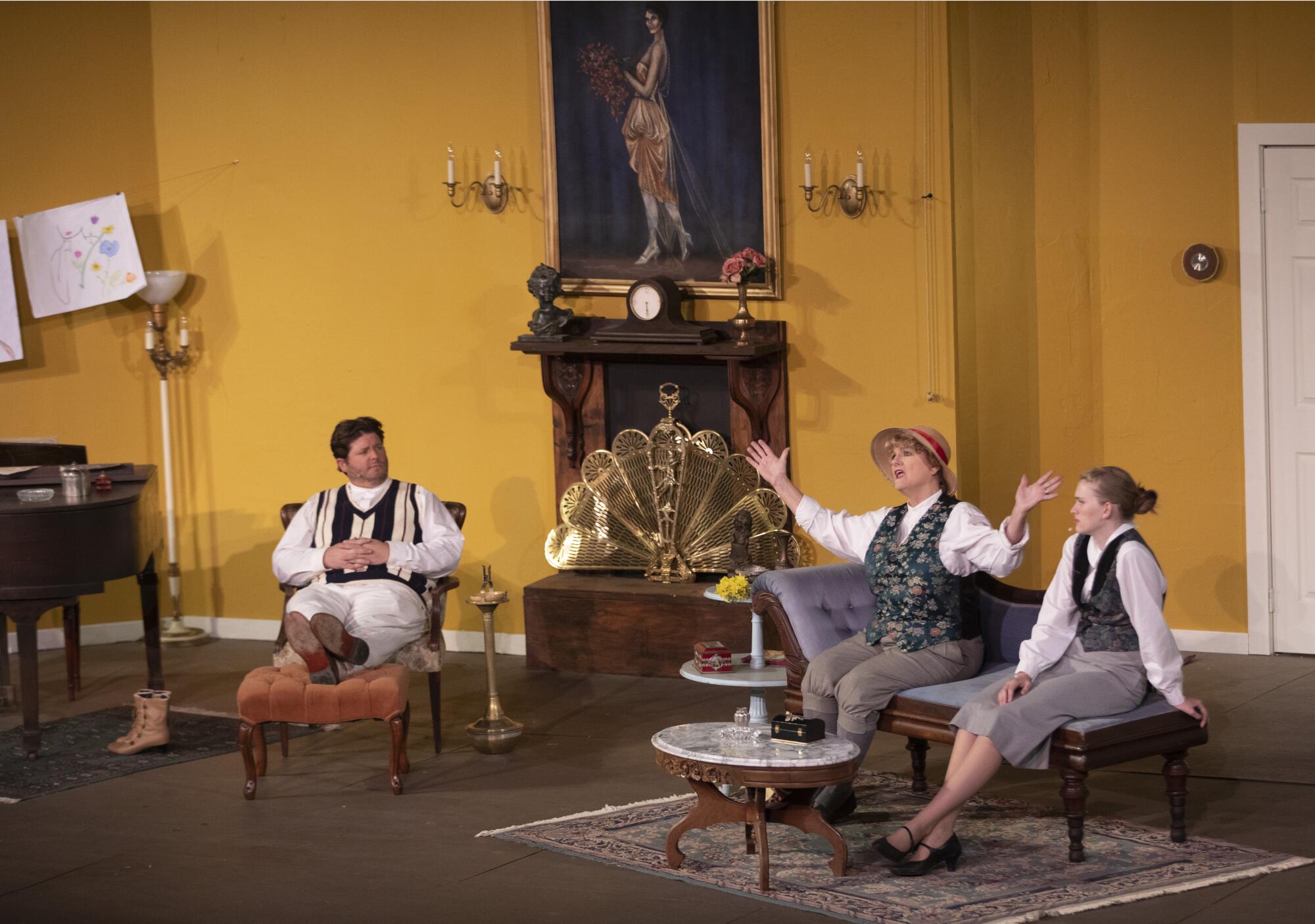
Mulderrig — whose bio in the “Hay Fever” program says she was “born in a car right up the road in Pioneer” — was acting in her first production for the Volcano Theatre Company.
She had tried out there in January 2020 and started rehearsals. The set was built. Her lines were memorized. The show never happened.
This year, “you don’t know, day to day, whether there’s going to be a big outbreak of the Delta variant or if the smoke and the air is going to be OK,” she said as she powdered her face on a picnic table near the stage. “You’re just waiting, hour to hour, wondering, ‘What’s the call going to be?’ So it’s — exciting?”
As he waited to get his stage makeup done, James Dove, a blue-eyed thespian nicknamed Stud by his castmates, said opening night was like a return to normality.
Dove, 41, of Sutter Creek, owns a house cleaning company, which saw its work cut in half during the pandemic because people did not want outsiders in their homes. He could barely keep his employees paid, and he took a second job as an assistant manager at a pizza restaurant in Jackson.
Officials credited aggressive firefighting, improved weather conditions and past efforts to prepare for wildfire with saving the resort town.
Eventually, people realized their houses wouldn’t clean themselves and called his cleaners back. There’s so much work now that he couldn’t keep the second job.
But without the theater, Dove was going stir-crazy.
“It’s nice being able to express yourself in a different way than just cleaning and going to work,” he said. “There’s only so many ways you can clean a house, so many ways you can make a pizza.”
The pandemic, the fires, the dreadful weight of the last year — all of it fades away on the stage, said actress Brenda Metzger, a retired state emergency management worker who played the flirty flapper Myra Arundel.
“When you’re performing, you have to stay in the moment,” she said. “When I’m on stage, I’m Myra. And the thing Myra cares about the most is getting laid.”
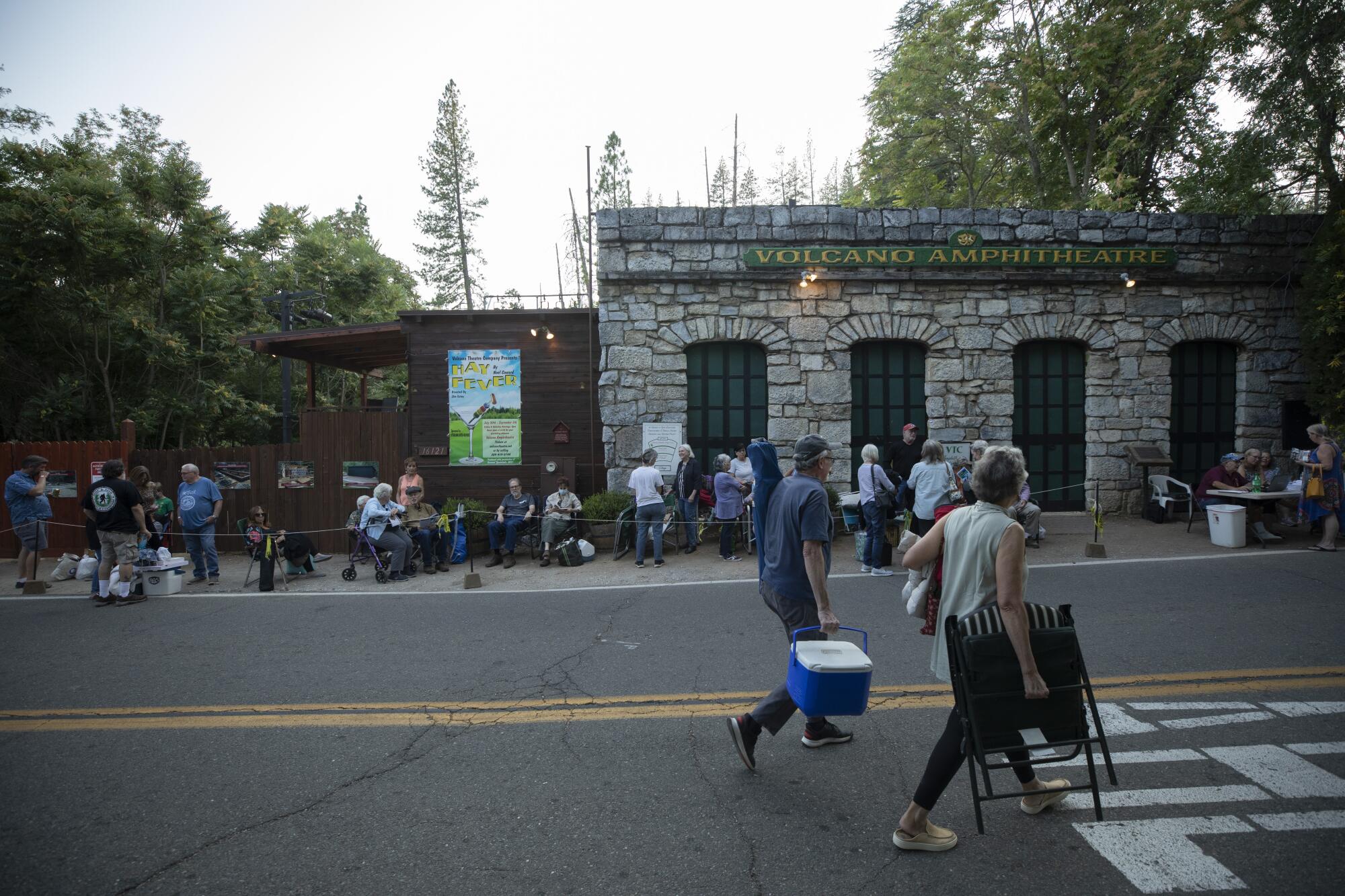
There were only about 38 people in the audience that night. A far cry from the typical crowds of 120 or so.
Karen Rovane, the theater company board’s publicity manager, worried aloud about the canceled shows and the small crowd.
“I’m looking at how we need to have so many people to at least make the money back from the show, let alone make a profit,” said Rovane, 60, of Pine Grove.
Every person involved with the theater — the actors, set builders, costume designers, tech operators — is a volunteer. All of the money from ticket sales goes right back into operations.
After the summer 2019 production of “James and the Giant Peach” at the amphitheater, volunteers were tearing down the set when they realized “things were squishy,” Rovane said. All of the wood beneath the stage, which had lasted three decades, was rotten.
The little town pulled together, raising more than $40,000 for a full reconstruction, an effort they called Save Our Stage 2020.
But who would save their stage from 2020?
“We had this big fundraiser, then shut down,” Rovane said. “We can’t just keep asking people for money.”
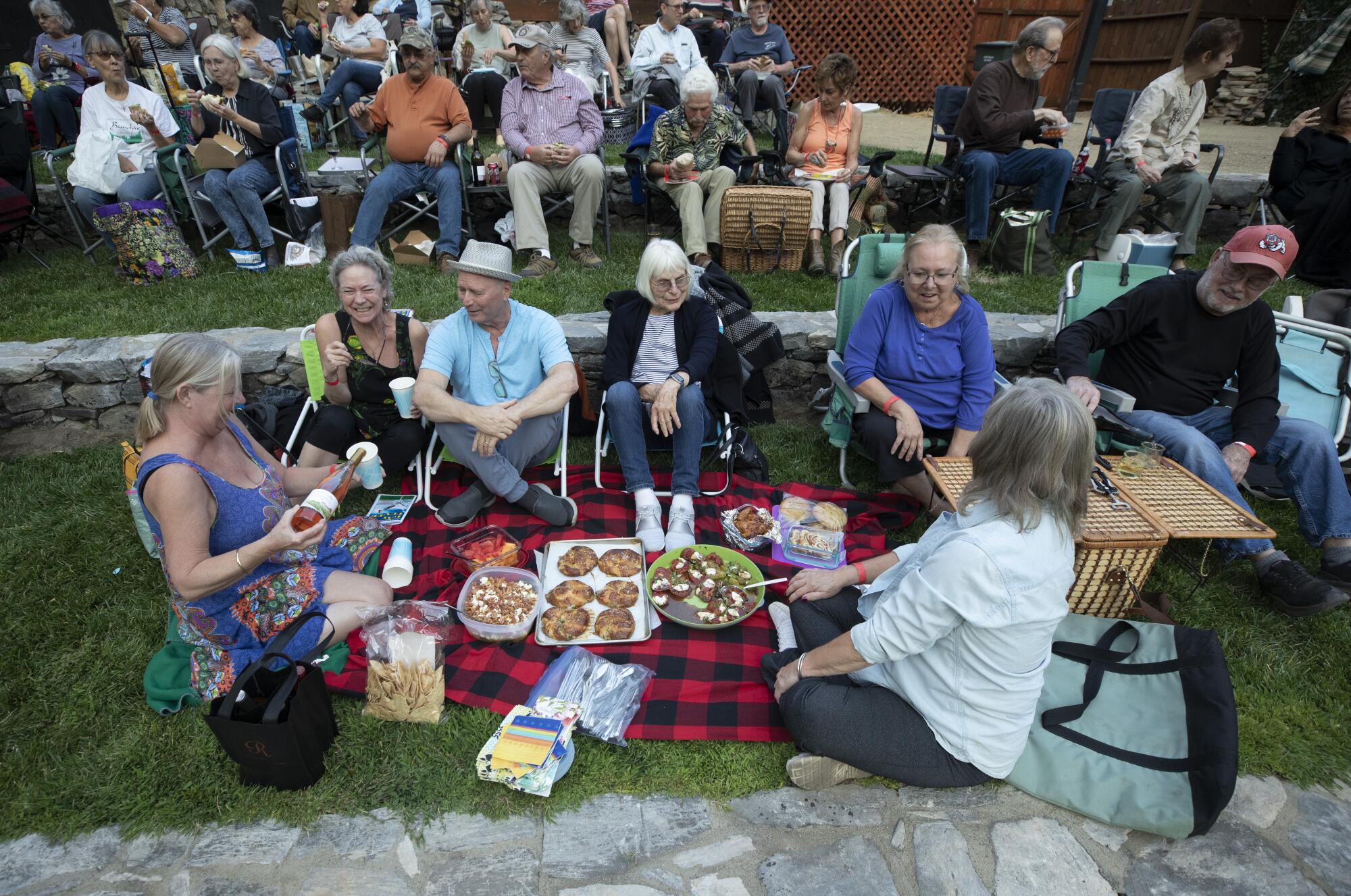
The audience sprawled on the grassy amphitheater steps, picnicking with coolers full of wine and cheese and crackers.
As the show began, cheers echoed through the canyon, and the faint smell of smoke hung in the air. A loud chorus of crickets, deep in the pines, accompanied the play.
On stage, the children of character Judith Bliss mused about how dull life must seem for her, newly retired in the country, far from the limelight. She’d be back, she said, for one can never stay away from the theater for long.
During intermission, volunteers serving cookies and coffee gave thumbs-up to the fire engines and ambulances, fresh off the Caldor fire, that kept rumbling down Main Street.
In Volcano, at least, the smoke was gone. When the stage lights went down, you could see the stars.
More to Read
Sign up for Essential California
The most important California stories and recommendations in your inbox every morning.
You may occasionally receive promotional content from the Los Angeles Times.
